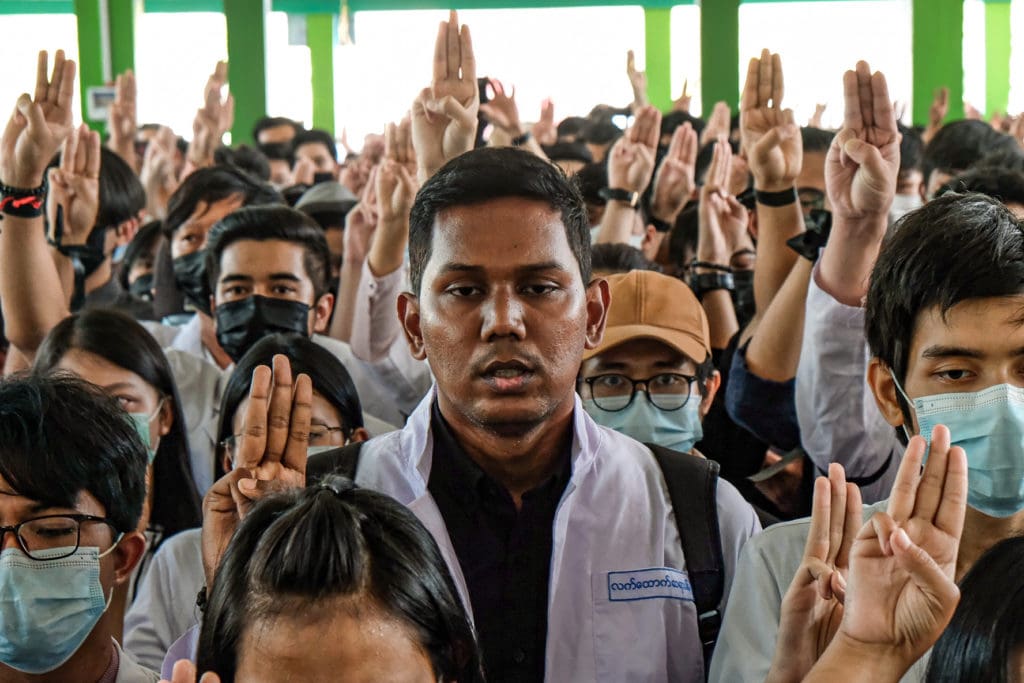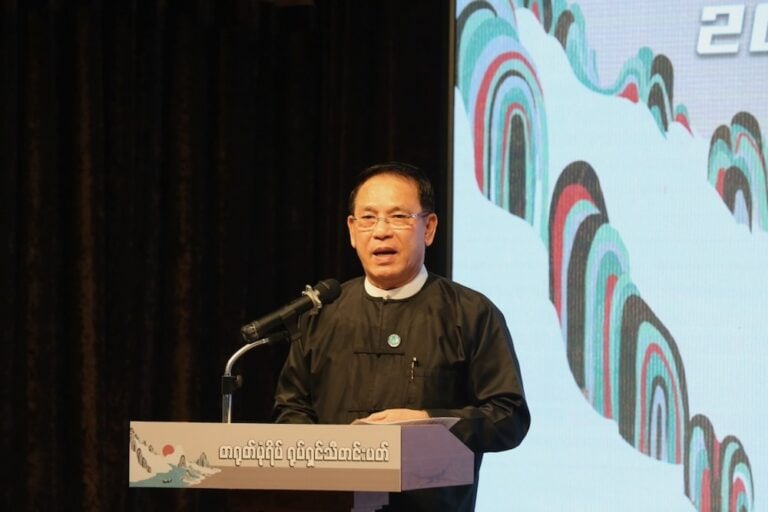IFEX, the global network of over 100 organisations dedicated to promoting and defending the right to freedom of expression and information, expresses its solidarity and support for its Myanmar member Mizzima, and condemns the violent crackdown against protestors, journalists, rights defenders, and civil society organisations perpetrated by the military junta which seized power in Myanmar on February 1st.
IFEX also calls on the military junta to immediately release all protestors and journalists who have been arrested, and for the restoration of media licenses to Mizzima and other news outlets, including Mizzima’s free-to-air TV channel.
Mizzima, an independent news outlet, has been contributing to freedom of expression and an inclusive and democratic Myanmar, for over 20 years. Since returning from exile in 2012, Mizzima’s reporting has played an invaluable role in supporting media freedom and Myanmar’s democratic transition. Mizzima has continued its critical work since the military coup, despite threats, intimidation, and attacks against their reporters and employees, the revocation of their media license, and a raid on their offices, along with those of four other independent media outlets.
“The IFEX network will continue to stand in solidarity with our colleagues at Mizzima, and with all those defending the right to freedom of expression and democratic rights in Myanmar,” said IFEX Executive Director Annie Game.
Journalism is not a crime, and Mizzima and other media outlets play an essential role in shedding light on the horrific violence being perpetrated by Myanmar’s military junta against their own people — violence we condemn unequivocally.
Since the junta, led by General Min Aung Hlaing and the Tatmadaw, seized power on February 1, Myanmar has seen daily peaceful protests and civil disobedience, bringing together the largest crowds in the country’s recent history to battle human rights abuses and demand the reinstatement of democracy.
In response, the military has enacted a brutal crackdown, including nationwide curfews, martial law, and daily communication and internet blackouts. To date, over 2600 people have been arrested, charged, or sentenced, including many journalists and human rights defenders responsible for monitoring and reporting on the protests. Over 240 people have been killed, with the UN sounding the alarm about “targeted and disproportionate” violence against women and calling for a return to democracy. To date, there is no indication that members of the security forces will be held accountable for this egregious and excessive use of force.
On the ground, police and soldiers have targeted the media, including Mizzima and many journalists, with tear gas, rubber bullets and, increasingly, live ammunition. Mizzima remains undeterred and has pledged to continue to oppose the military coup and call for the restoration of democracy and human rights.
Since February 1st, IFEX member organisations across the Asia-Pacific region and the globe have expressed their strong condemnation of the coup and support for those struggling for their rights. Updates from the developing situation in Myanmar are available on the websites of both IFEX and Mizzima.



